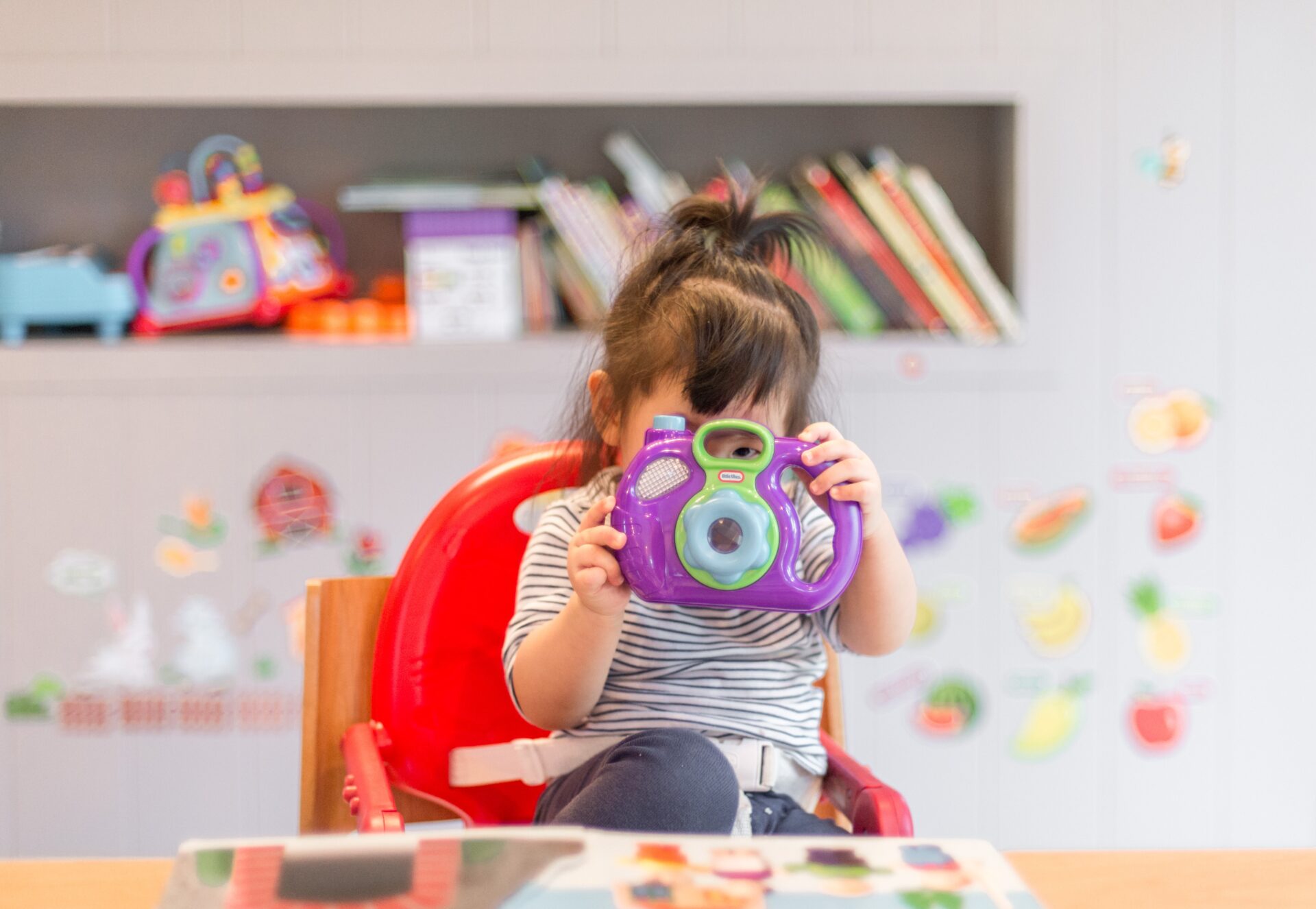As a parent, you are always looking for ways to help your baby grow and develop. While it may seem like social and emotional growth is something that will naturally occur, there are actually simple ways that you can foster and encourage this important aspect of your baby’s development. From engaging in interactive play to creating a nurturing and supportive environment, these eight strategies will help you lay the foundation for your baby’s social and emotional well-being. By implementing these simple techniques, you will be setting your little one up for success in building strong relationships and developing key life skills.
Create a nurturing environment
Provide a consistent routine
Establishing a consistent routine for your baby can provide a sense of security and stability. Babies thrive on predictability, as it helps them feel safe and confident in their surroundings. Make sure to set regular times for feeding, sleeping, and playtime. Consistency in your daily activities will help your baby develop a sense of trust and understanding of the world around them.
Practice responsive parenting
Responsive parenting is all about being attuned to your baby’s needs and promptly meeting them. By being attentive and responsive to your baby’s cues, such as hunger or discomfort, you create an environment where your baby feels valued and understood. Responding promptly to your baby’s needs helps build a strong bond and fosters a sense of trust. It also teaches your baby that their emotions and needs are important.
Create a secure attachment
Building a secure attachment with your baby is crucial for their social and emotional development. This attachment forms the foundation for your baby’s relationships and how they perceive the world. To create a secure attachment, ensure that your baby feels loved, supported, and safe. This can be done by consistently responding to their needs, offering comfort through physical touch, and providing a nurturing environment.
Offer plenty of love and affection
Love and affection are vital in developing your baby’s social and emotional skills. Show your baby love through gentle cuddles, kisses, and hugs. Engage in lots of positive physical contact, such as skin-to-skin time and baby massages. Regularly express your love through soft spoken words, smiles, and eye contact. By showering your baby with love and affection, you create a strong foundation for healthy social and emotional growth.
Encourage social interactions
Engage in face-to-face interactions
Interacting face-to-face with your baby is essential for their social development. Make eye contact, smile, and use facial expressions to engage with your baby. Talking and singing to your baby can also help foster social connections. Engaging in face-to-face interactions allows your baby to feel seen and understood, strengthening their social skills and promoting a sense of belonging.
Attend playgroups or mommy-and-me classes
Joining playgroups or mommy-and-me classes provides an excellent opportunity for your baby to socialize. These groups offer a supportive environment where babies can interact with their peers while parents can connect and share experiences. Playgroups and classes often provide structured activities that encourage social engagement and promote emotional development.
Arrange playdates with other babies
Organizing playdates with other babies allows your little one to learn important social skills such as sharing, turn-taking, and cooperation. Socializing with peers also provides an opportunity for your baby to observe and imitate social behaviors, learn empathy, and develop communication skills. Choose playdates with babies around the same age to ensure they are developmentally compatible.
Encourage cooperative play
Cooperative play involves collaborative activities where babies work together towards a common goal. Encouraging your baby to engage in cooperative play helps them learn valuable social skills such as sharing, problem-solving, and teamwork. Set up activities that require cooperation, such as building blocks or completing puzzles together. By nurturing cooperative play, you foster a sense of empathy and understanding in your baby.

Promote emotional literacy
Label and validate emotions
Help your baby develop emotional literacy by labeling and validating their emotions. When your baby shows signs of frustration, sadness, or happiness, verbally acknowledge and validate their feelings. For example, if your baby is upset because a toy is out of reach, you can say, “I see that you’re feeling frustrated because you can’t reach the toy. It’s okay to feel that way.” This simple act normalizes emotions and helps your baby understand and express their feelings.
Discuss feelings and emotions during daily activities
Incorporate discussions about feelings and emotions into your daily activities. For instance, during mealtimes, you can talk about how certain foods make you feel happy or satisfied. While reading books or watching shows, ask your baby questions about how the characters might be feeling. These discussions provide an opportunity for your baby to learn about emotions and develop empathy.
Read books about emotions
Reading books about emotions is an effective way to teach your baby about different feelings. Look for books that have colorful illustrations and simple text that your baby can easily understand. As you read, point out the emotions depicted in the story and discuss how the characters might be feeling. Reading books about emotions helps your baby develop emotional intelligence and empowers them to recognize and understand their own emotions.
Use empathy and active listening
Practicing empathy and active listening with your baby creates a nurturing environment where their emotions are acknowledged and understood. When your baby expresses their emotions, respond with empathy and validate their feelings. Use active listening by giving your full attention, maintaining eye contact, and providing verbal or non-verbal cues to show that you are actively engaged in understanding their emotions. This helps your baby feel heard and valued, strengthening their emotional bond with you.
Teach self-regulation
Model self-control and coping strategies
As a parent, you are your baby’s most influential role model. By modeling self-control and healthy coping strategies, you teach your baby how to regulate their own emotions and behaviors. Demonstrate calmness and self-control in challenging situations, and verbalize your own coping strategies, such as taking deep breaths or counting to ten. Your baby will observe and learn from your example, developing their own self-regulation skills.
Provide a calm and soothing environment
A calm and soothing environment is essential for your baby’s emotional well-being. Create a space that is free from excessive noise, bright lights, and chaos. Establish consistent bedtime routines that promote relaxation and restful sleep. When your baby is upset or overstimulated, provide a quiet and peaceful area where they can calm down. A calm environment helps your baby learn to self-regulate and manage their emotions.
Help regulate emotions through physical touch
Physical touch can be incredibly soothing for babies and helps them regulate their emotions. Gentle swaying, rocking, or cuddling can provide comfort when your baby is upset. Offer a warm and secure embrace during moments of distress. Physical touch releases feel-good hormones and strengthens the bond between you and your baby, fostering emotional regulation and a sense of security.
Encourage self-soothing techniques
Promote the development of self-soothing techniques by allowing your baby to explore different ways of calming themselves. This could include sucking their thumb, cuddling a favorite blanket, or engaging in repetitive motions such as patting their legs. Encourage these self-soothing behaviors by providing your baby with comfort objects or allowing them to engage in their chosen methods. Self-soothing helps your baby develop independence and resilience in managing their emotions.

Expose your baby to diversity
Expose your baby to different cultures and traditions
Exposing your baby to different cultures and traditions from an early age fosters acceptance, inclusivity, and an appreciation for diversity. Incorporate elements of various cultures into your daily routines, such as trying different cuisines, celebrating different holidays, or learning about different cultural practices. By exposing your baby to different cultures, you help them develop an open-minded perspective and respect for others.
Encourage interactions with diverse groups of people
Encourage your baby to interact with people from diverse backgrounds, including different races, ethnicities, religions, and abilities. Attend community events or join groups where your baby can have exposure to people from various walks of life. By interacting with diverse groups of people, your baby learns to appreciate and embrace differences, promoting empathy and understanding.
Read books and watch shows that feature diverse characters
Introduce your baby to books and shows that feature diverse characters and address themes of diversity and inclusion. Look for age-appropriate materials that depict characters from different backgrounds and cultures. As you read or watch together, talk about the different characters and their unique qualities. This promotes empathy, cultural awareness, and a sense of belonging for your baby.
Teach your baby about tolerance and acceptance
From an early age, instill in your baby the values of tolerance and acceptance. Teach them to respect and embrace differences in others. Use age-appropriate language to explain that everyone is unique and that diversity is something to be celebrated. Incorporate these values into your daily interactions and discussions, reinforcing the importance of treating others with kindness and respect.
Practice empathy and compassion
Model empathy towards others
Demonstrate empathy towards others in the presence of your baby. Show compassion and kindness to friends, family, and strangers alike. Your baby will observe and internalize these behaviors, learning to empathize with others. Narrate your actions and explain to your baby how acts of empathy can positively impact others. Modeling empathy helps shape your baby’s understanding of compassion and encourages them to be considerate and caring individuals.
Encourage acts of kindness and generosity
Encourage your baby to engage in acts of kindness and generosity, no matter how small. This can include sharing toys with others, comforting a friend who is upset, or participating in small acts of community service. Praise and positively reinforce these acts of kindness, highlighting the positive impact they have on others. By fostering a culture of kindness, you help your baby develop a compassionate and empathetic nature.
Teach your baby to recognize and respond to others’ emotions
Help your baby develop empathy by teaching them to recognize and respond to others’ emotions. Use books, pictures, or real-life scenarios to introduce different emotional expressions. Encourage your baby to identify and understand how someone might be feeling. When interacting with others, narrate the emotions being displayed, helping your baby connect with and respond appropriately to those emotions.
Foster a sense of community and belonging
Emphasize the importance of community and belonging in your baby’s life. Participate in local activities and events that promote a sense of togetherness. Engage in activities that involve giving back to the community, such as volunteering or contributing to charitable causes. By fostering a sense of community, your baby develops a deep understanding of the value of connection and compassion.

Provide opportunities for social play
Offer a variety of age-appropriate toys and games
Provide your baby with a wide range of age-appropriate toys and games to encourage social play. Choose toys that promote interaction, such as building blocks, puzzles, or board games that require multiple participants. Offering a variety of toys stimulates imagination, creativity, and cooperative play among babies.
Join parent-child classes or activities
Engaging in parent-child classes or activities provides an excellent opportunity for your baby to interact and play with other children their age. Look for classes that encourage socialization, such as music classes, baby yoga, or sensory playgroups. These classes not only promote social play but also provide a chance for you to connect with other parents, fostering a sense of community.
Create opportunities for parallel play
Parallel play is when babies play independently but alongside other children. Create opportunities for parallel play by arranging play dates or setting up play situations where your baby can play alongside their peers. Providing a supportive environment for parallel play helps your baby develop social skills such as turn-taking, sharing, and cooperation.
Encourage cooperative play
Cooperative play is an integral part of your baby’s social development. Encourage cooperative play by setting up activities that require collaboration and problem-solving. Foster teamwork and communication skills by engaging in games or tasks that involve working together towards a common goal. Cooperative play teaches your baby important social skills and helps them develop positive relationships with their peers.
Use positive reinforcement
Offer praise and encouragement
Positive reinforcement is a powerful tool for encouraging social and emotional growth in your baby. Offer genuine praise and encouragement when your baby demonstrates positive behaviors, shares, communicates effectively, or shows empathy towards others. Acknowledge their efforts and achievements, focusing on the process rather than just the end result. Positive reinforcement enhances your baby’s self-esteem and motivates them to continue developing their social and emotional skills.
Use rewards and incentives
In addition to praise, you can use rewards and incentives to reinforce positive behaviors. This could be as simple as giving a sticker or a small treat for completing a task or displaying desired social behavior. Rewards and incentives provide positive reinforcement and help your baby understand the value of their actions.
Focus on effort, progress, and process rather than results
When providing feedback to your baby, focus on their effort, progress, and the process they undergo rather than solely focusing on the end result. By emphasizing the journey, you encourage a growth mindset and resilience. Recognize and value the steps your baby takes towards achieving their social and emotional milestones, empowering them to continue their development.
Provide guidance and constructive feedback
Alongside positive reinforcement, it is important to provide guidance and constructive feedback to help your baby develop their social and emotional skills. Offer gentle redirection when needed, helping your baby understand appropriate behavior and guiding them towards more positive interactions. Use clear and age-appropriate language to explain why certain behaviors are not ideal and suggest alternative ways to navigate social situations. Constructive feedback helps your baby learn and grow through gentle guidance.
Support language development
Engage in conversations with your baby
Engaging in conversations with your baby is crucial for their language development and social interaction skills. Talk to your baby as you go about your daily activities, describing what you’re doing, and asking questions. Pause and give your baby time to respond, even if it’s through cooing or babbling. Respond to their sounds and gestures, showing them that their communication is valued and important.
Read to your baby every day
Reading to your baby every day has numerous benefits, including language development, cognitive skills, and social-emotional bonding. Choose age-appropriate books with colorful illustrations and simple text. As you read, engage your baby by using different voices for characters and asking questions about the story. Reading together builds vocabulary, comprehension, and fosters a love for books and learning.
Sing songs and recite rhymes together
Songs and rhymes are not only fun but also aid in language development and social engagement. Sing songs, recite nursery rhymes, and engage in finger-play activities with your baby. These activities help develop language skills, rhythm, and coordination. Singing and reciting together also promote bonding and create joyful experiences for you and your baby.
Teach basic sign language
Introducing basic sign language to your baby can facilitate communication before they have developed verbal skills. Teach simple signs for everyday words such as “more,” “eat,” or “milk.” Using signs alongside verbal communication helps your baby express their needs and desires, reducing frustration and promoting social interaction. Learning sign language also fosters a sense of accomplishment and empowers your baby to communicate effectively.
Model healthy relationships
Maintain a loving and respectful relationship with your partner
Your relationship with your partner serves as a model for your baby’s understanding of healthy relationships. Maintain a loving and respectful partnership, demonstrating kindness, empathy, and effective communication. Show affection and appreciation towards each other, as your baby observes and learns from your interactions. By modeling a healthy relationship, you provide your baby with a strong foundation for developing healthy relationships of their own.
Demonstrate effective communication skills
Effective communication is essential in building strong relationships. Communicate openly and respectfully with your baby, using simple and clear language. Demonstrate active listening, responding to their cues and signals. By practicing effective communication with your baby, you teach them the importance of clear expression, active listening, and understanding in their future relationships.
Resolve conflicts in a healthy manner
Conflict is a normal part of any relationship, and demonstrating healthy conflict resolution helps shape your baby’s understanding of how to navigate disagreements in their own relationships. When conflicts arise, model constructive problem-solving techniques such as active listening, compromise, and finding mutually agreeable solutions. By resolving conflicts in a respectful and calm way, you teach your baby valuable skills for building and maintaining healthy relationships.
Show your baby what healthy relationships look like
By inviting positive relationships into your baby’s life, you provide them with examples of what healthy relationships look like. Surround your baby with close friends and family who exhibit nurturing, supportive, and respectful behavior. Encourage interactions with these role models, creating opportunities for your baby to witness positive relationship dynamics and fostering their own understanding of healthy connections.
In conclusion, fostering social and emotional growth in your baby is a multifaceted process that requires creating a nurturing environment, encouraging social interactions, promoting emotional literacy, teaching self-regulation, exposing your baby to diversity, practicing empathy and compassion, providing opportunities for social play, using positive reinforcement, supporting language development, and modeling healthy relationships. By implementing these simple yet impactful strategies, you can help your baby develop important social and emotional skills that will serve as a foundation for a healthy and fulfilling life.

